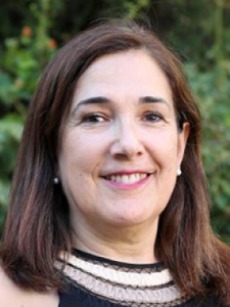
Home Department: Spanish and Portuguese
Regents Professor
Director of the National Center for Interpretation
Affiliation: Department of Speech, Language and Hearing
SLAT Areas of Specialization: Linguistic Dimensions of L2 Learning, Sociocultural Dimensions of L2 Learning
Dr. Sonia Colina's areas of expertise are Spanish phonology (Optimality Theory, syllable structure) and Translation Studies (translation pedagogy, translation quality and translation in health care). She is the author of Fundamentals of Translation (Cambridge University Press, 2015), Syllable Structure in Spanish (Georgetown University Press, 2009), Translation Teaching: From Research to the Classroom (McGraw-Hill, 2003), the co-editor of The Handbook of Spanish Phonology, Fonología generativa contemporánea de la lengua española, Optimality-Theoretic Studies in Spanish Phonology, and Romance Linguistics 2009: Selected Proceedings of the 39th LSRL, and the author of numerous book chapters and articles in refereed journals. In addition to her publications, Professor Colina has served as an investigator and consultant for the Robert Wood Johnson foundation (Hablamos Juntos program) and as research team member in the UA’s NIH funded-project Oyendo Bien (Hearing Well) (with faculty from Speech and Hearing and Public Health) which used the Community Health Worker model to improve access to care by limited English proficient populations with chronic hearing loss on the Arizona-Mexico border. She was responsible for the translation/language mediation aspect of the grant. She was also a Co-Investigator on another NIH grant with the UA’s Department of Management of Information Systems on Spanish/English automatic text simplification. Sonia Colina is regular faculty in the Second Language Acquisition and Teaching program and is affiliated with the Department of Speech, Language and Hearing Sciences (College of Science). She is a founding member and Past President of the American Translation and Interpreting Studies Association (ATISA) (www.atisa.org).

